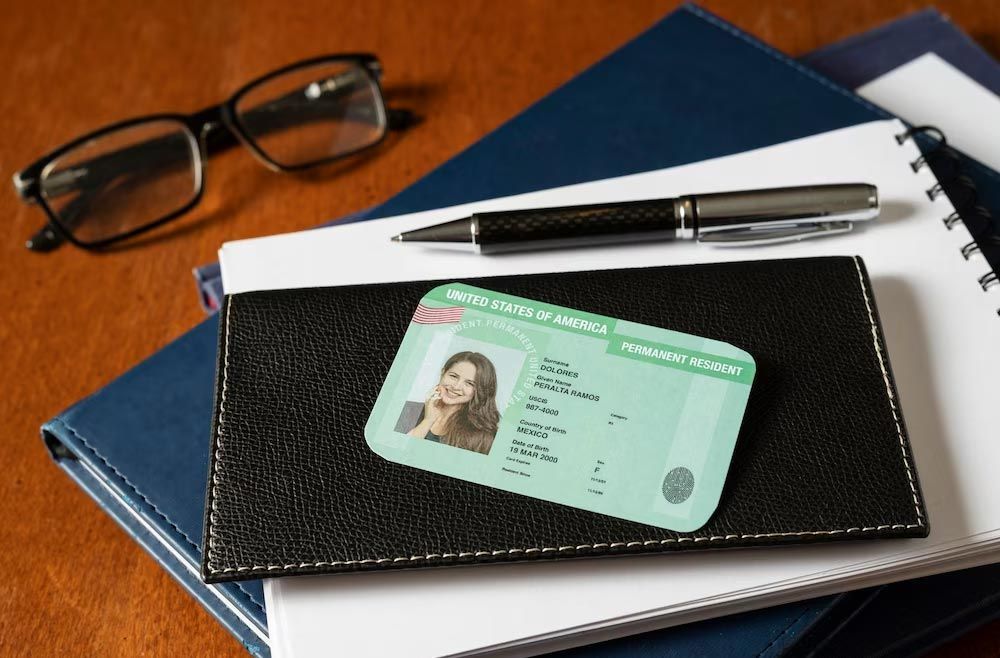New York Identity Theft Attorney
Identity theft occurs when someone assumes the identity of another person for personal gain or to cause financial harm. Assuming the identity of another person may take many forms, including presenting oneself as another person by using his or her credit card number, social security number, or other identifying information.
Identity Theft crimes in New York range from low-level misdemeanors to serious felonies. Generally, the seriousness of the crime depends on the value of the information appropriated or the goods and services obtained using the stolen identity.
Degrees of Identity Theft in New York
Identity Theft in the Third Degree
A person commits Identity Theft in the Third Degree under Penal Law Section 190.78 when he or she:
- Knowingly and with intent to defraud another person
- Assumes the identify of another person by
- Presenting themselves as that other person
- Acting as that other person; or
- Using identifying information of another person; and
- Obtains goods, money, property or services, uses credit in the name of another person or causes financial loss to another person; or
- Commits a class A misdemeanor or higher-level crime
There is no set threshold for financial harm for Identity Theft in the Third Degree.
Identity Theft in the Third Degree is a class A misdemeanor, punishable by up to 1 year in jail. Alternatively, a person convicted under this statute may be placed on probation for 2 or 3 years.
Alternative resolutions such as an Adjournment in Contemplation of Dismissal (ACD) or plea to a non-criminal offense are not so routinely offered as in many other misdemeanor cases, even if the defendant has no prior criminal history. However, an experienced criminal defense attorney may be able to negotiate such an offer.
Identify Theft in the Second Degree
Penal Law Section 190.79, Identity Theft in the Second Degree, is charged when a person:
- Knowingly and with intent to defraud another person
- Assumes the identify of another person by
- Presenting themselves as that other person
- Acting as that other person; or
- Using identifying information of another person; and
- Obtains money, good, property or services valued at more than $500; or
- Uses credit in the name of another person in excess of $500; or
- Causes financial loss to another person in excess of $500; or
- Commit or attempts to commit a felony or acts as an accessory to a felony; or
- Commits the crime of Identity Theft in the Third Degree, but has a conviction within the preceding 5 years for any degree of:
- Identity Theft;
- Grand Larceny;
- Unlawful Possession of Personal Identification; or
- Unlawful Possession of a Skimmer Device
Identity Theft in the Second Degree is a class E felony, punishable by 1 1/3 to 4 years in prison for a first-time offender. However, the court may also sentence a person convicted of Identity Theft in the Second Degree to:
- 1 to 3 years in prison;
- Probation for 3, 4 or 5 years;
- A split sentence of up to 6 months in jail; or
- A straight conditional discharge
In New York City, some common weapon-related charges include:
The penalty for Identity Theft in the Second Degree varies from no jail time at all to 4 years in prison—or more, dependent on prior convictions. Give yourself the advantage of a seasoned advocate at your side. Contact us right away.
Identity Theft in the First Degree
A person is guilty of Identity Theft in the First Degree, Penal Law Section 190.80, when he or she:
- Knowingly and with intent to defraud another person
- Assumes the identify of another person by
- Presenting themselves as that other person
- Acting as that other person; or
- Using identifying information of another person; and
- Obtains money, good, property or services valued at more than $2,000; or
- Uses credit in the name of another person in excess of $2,000; or
- Causes financial loss to another person in excess of $2,000; or
- Commit or attempts to commit a class D felony or acts as an accessory to a class D felony; or
- Commits the crime of Identity Theft in the Second Degree, but has a conviction within the preceding 5 years for any degree of:
- Identity Theft;
- Grand Larceny;
- Unlawful Possession of Personal Identification; or
- Unlawful Possession of a Skimmer Device
Being arrested for a weapons offense can be a frightening and overwhelming experience. With the help of an experienced criminal defense attorney, you can fight the charges you face and protect your rights.
- 1 to 3 years in prison;
- Probation for 3, 4 or 5 years;
- A split sentence of up to 6 months in jail; or
- A straight conditional discharge
Identity Theft in the First Degree is a serious charge. Don’t try to manage it alone. Get the help you need right now.
Aggravated Identity Theft – Military Victims
Aggravated Identity Theft under Penal Law Section 190.80-a applies under a very limited set of circumstances:
- The victim is a member of the armed forces and is deployed outside of the United States; and
- The accused is aware both that the victim is member of the armed forces and that he or she is deployed outside the country.
Under these circumstances, acts that would otherwise be charged and punished as Identity Theft in the Second Degree are elevated to the seriousness of a First Degree charge.
Unlawful Possession of Personal Information in New York
Unlawful Possession of Personal Information involves the knowing possession of personal information of another person with the intent to commit an Identity Theft crime. The degree is determined by the amount of personal information possession and the involvement of other parties. For purposes of this statute, personal information includes:
- Financial services account number or code;
- Savings account number or code;
- Checking account number or code;
- Brokerage account number or code;
- Credit or debit card account number or code;
- Automatic teller machine (ATM) number or code;
- Personal Identification Number;
- Mother’s maiden name;
- Computer system password;
- Electronic signature;
- Unique biometric fingerprint, voice print or retinal image data; or
- Iris image of another person
Unlawful Possession of Personal Identification Information in the Third Degree
Unlawful Possession of Personal Identification Information in the Third Degree, Penal Law Section 190.81, occurs when a person merely possesses any of the above-listed personal identification information with the intent to commit an Identity Theft-related crime.
This class A misdemeanor carries a maximum penalty of 1 year in jail or 2 or 3 years on probation. Even if the defendant has little or no criminal history, prosecutors are generally less likely to offer non-criminal plea bargains or ACDs in these cases.
The prosecution takes Identity Theft-related crimes seriously, and will generally be less likely to reduce charges in this type of case. Have a skilled negotiator who understands the criminal process on your side.
Unlawful Possession of Personal Identification Information in the Second Degree
Unlawful Possession of Personal Identification Information in the Second Degree, Penal Law Section 190.82, is charged when the defendant knowingly possesses at least 250 personal identification items.
As a class E felony, with a maximum sentence of up to 4 years in prison, assuming that the defendant has no prior felony convictions. However, the prosecution may agree or the judge may order that the defendant instead be sentenced to:
- 1 to 3 years of imprisonment
- Probation for 3, 4 or 5 years
- A split sentence of up to 6 months in jail and probation; or
- A straight conditional discharge
Unlawful Possession of Personal Identification Information in the First Degree
A person will be charged with Unlawful Possession of Personal Identification Information in the First Degree, Penal Law Section 190.83, if he or she commits Unlawful Possession of Personal Information in the Second Degree and:
- Supervises more than 3 accomplices in that process;
- Has been convicted in the preceding 5 years of any degree of
- Identity Theft
- Grand Larceny
- Unlawful Possession of Personal Identification Information; or
- Unlawful Possession of a Skimmer Device; or
- Supervises more than 2 accomplices and knowingly possesses the personal information of a member of the armed services he or she knows to be deployed outside the U.S.
Unlawful Possession of Personal Identification Information in the First Degree is a class D felony and is punishable by a maximum of 7 years in prison, assuming that the defendant has no prior felony convictions. However, the defendant may also be sentenced to:
- 1 to 3 years of imprisonment
- Probation for 3, 4 or 5 years
- A split sentence of up to 6 months in jail and probation; or
- A straight conditional discharge
Unlawful Possession of Personal Identification Information is a serious crime, but outcomes vary dramatically. Don’t gamble with your future.
Unlawful Possession of Skimmer Devices in New York
Skimmer devices are among the most commonly used tools for obtaining personal information. Skimmer devices are often found on ATM machines, sometimes even those inside financial institutions. These devices are used to obtain personal information from cards such as debit and credit cards.
Unlawful Possession of a Skimmer Device in the Second Degree, Penal Law Section 190.85, requires only that the person possess a skimmer device with the intent to use such device in the commission of Identity Theft or Unlawful Possession of Personal Identification Information in any degree.
Unlawful Possession of a Skimmer Device in the First Degree is charged when a person commits the Second Degree crime, but has been convicted within the previous 5 years of Identity Theft, Grand Larceny, or Unlawful Possession of Personal Identification in any degree. The First Degree offense is a class E felony.
If you’ve been charged with an Identity Theft-related crime, don’t delay. Get help right now.
Contact Us for a FREE Consultation
Identity Theft - Form
We will get back to you as soon as possible.
Please try again later.
Practice Areas
Service Areas
Client Name
September 28, 2020

- Michael

There is no words to describe Mr.Nipun ! His professionalism and his attentiveness for his clients is incredible! I hired him 2 years ago to resolve an issue, and hired him again this week for another problem and he was there the whole time throughout the process. He is a trustworthy Lawyer, Made me feel comfortable and explained everything in detail. He is one of the best lawyers I’ve met in New York! Highly Recommended.
Multiple Charges in Connection with Identity Theft
Though Identity Theft-related crimes are serious on their own, they are often charged in connection with other crimes. Some of the most common felony charges associated with Identity Theft in New York that have not been discussed herein include Possession of a Forged Instrument, Forgery and Criminal Possession of Stolen Property (CPSP).

DON'T DELAY, CONTACT OUR FIRM
Schedule an initial consultation to discuss your case right away.
The Marwaha Law Group, PLLC
We deliver expert legal advice to clients across New York, building on years of dedicated experience. Learn More »
OUR LINKS
OUR PRACTICE AREAS







